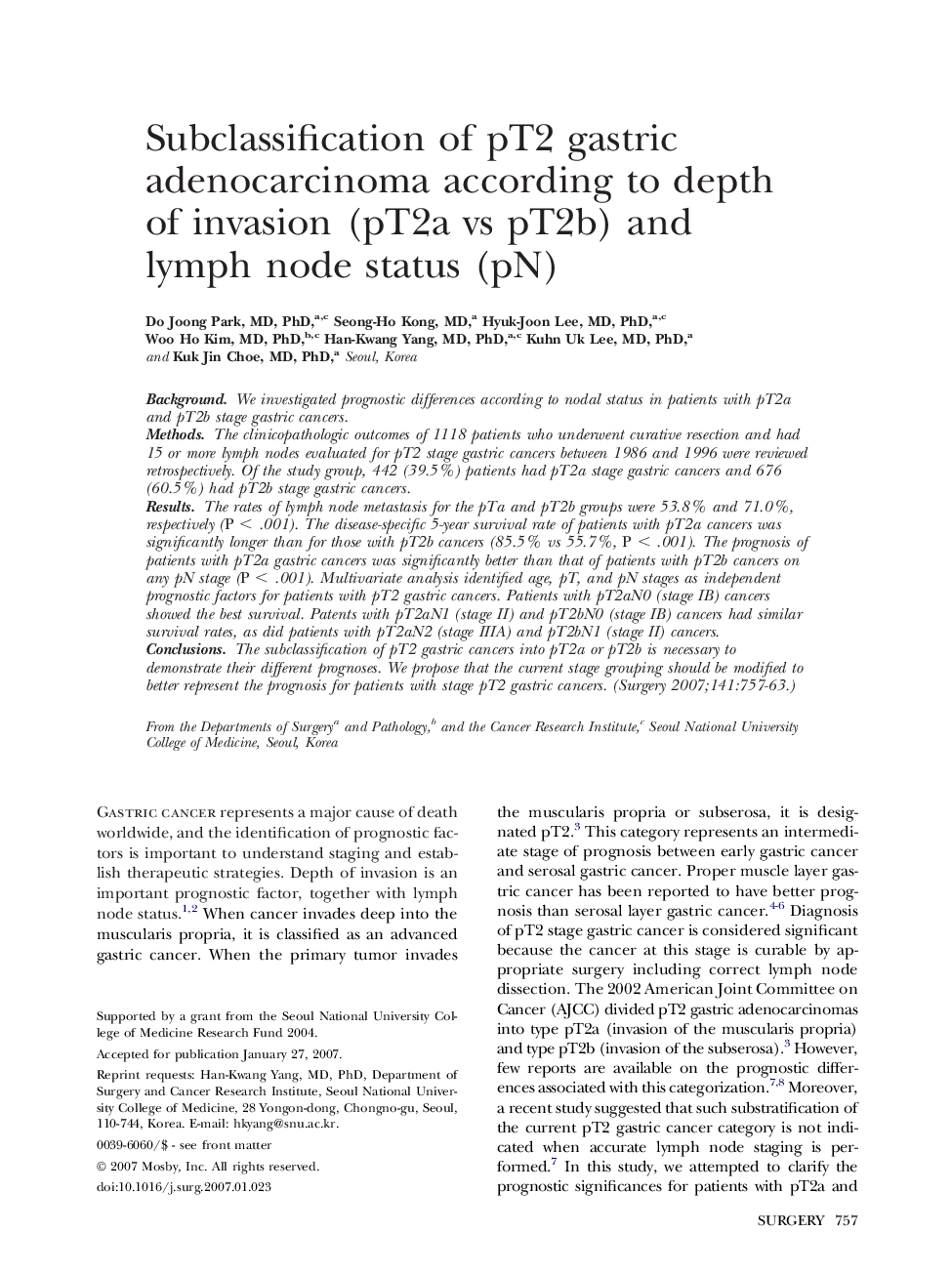| Article ID | Journal | Published Year | Pages | File Type |
|---|---|---|---|---|
| 4310360 | Surgery | 2007 | 7 Pages |
BackgroundWe investigated prognostic differences according to nodal status in patients with pT2a and pT2b stage gastric cancers.MethodsThe clinicopathologic outcomes of 1118 patients who underwent curative resection and had 15 or more lymph nodes evaluated for pT2 stage gastric cancers between 1986 and 1996 were reviewed retrospectively. Of the study group, 442 (39.5%) patients had pT2a stage gastric cancers and 676 (60.5%) had pT2b stage gastric cancers.ResultsThe rates of lymph node metastasis for the pTa and pT2b groups were 53.8% and 71.0%, respectively (P < .001). The disease-specific 5-year survival rate of patients with pT2a cancers was significantly longer than for those with pT2b cancers (85.5% vs 55.7%, P < .001). The prognosis of patients with pT2a gastric cancers was significantly better than that of patients with pT2b cancers on any pN stage (P < .001). Multivariate analysis identified age, pT, and pN stages as independent prognostic factors for patients with pT2 gastric cancers. Patients with pT2aN0 (stage IB) cancers showed the best survival. Patents with pT2aN1 (stage II) and pT2bN0 (stage IB) cancers had similar survival rates, as did patients with pT2aN2 (stage IIIA) and pT2bN1 (stage II) cancers.ConclusionsThe subclassification of pT2 gastric cancers into pT2a or pT2b is necessary to demonstrate their different prognoses. We propose that the current stage grouping should be modified to better represent the prognosis for patients with stage pT2 gastric cancers.
